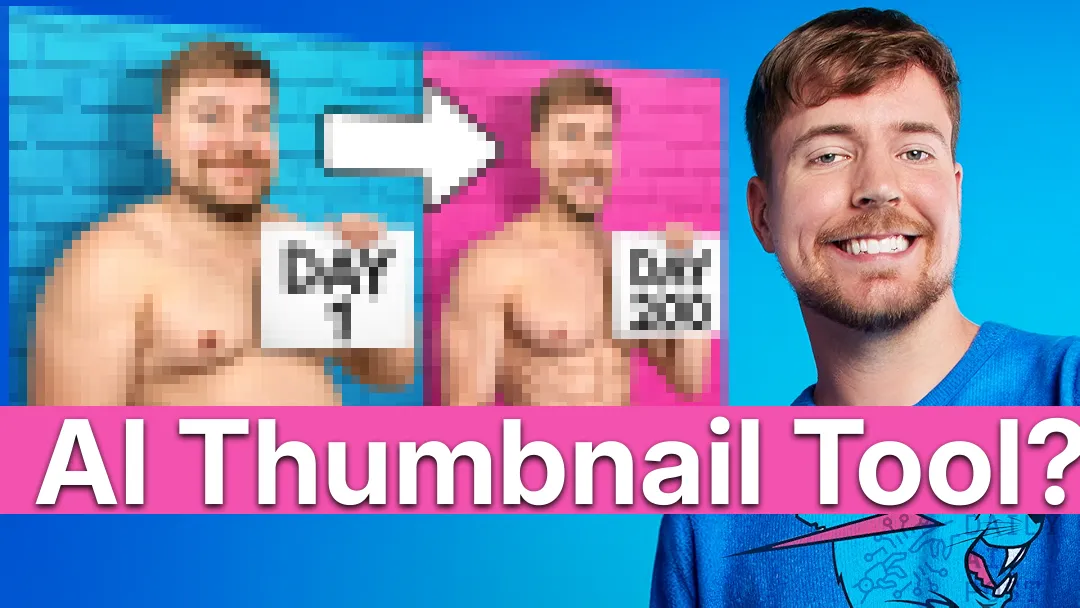
MrBeast Pulls AI Thumbnail Tool After Creator Backlash
In what was meant to be a game-changing tool for YouTube creators, MrBeast’s newly launched AI thumbnail generator was abruptly taken offline just five days after its release. The reason? A fierce backlash from the very community it aimed to serve.
The Launch That Sparked a Firestorm
On June 22, MrBeast—YouTube’s most-followed individual creator—announced a new AI tool designed to help content creators generate high-performing video thumbnails. The idea behind it was simple: use machine learning trained on successful thumbnails to help creators drive more clicks and increase video visibility.
But soon after launch, creators and industry insiders raised red flags.
The AI was accused of copying or heavily mimicking popular thumbnail designs from across YouTube, without credit or consent from original creators. Essentially, the tool didn’t just learn from examples—it recreated them, sometimes with eerie precision.
Creator Backlash Erupts
The criticism came fast and loud.
Popular streamer Jacksepticeye tweeted, “What the actual f… I hate what this platform is turning into,” echoing widespread frustration over automation being used in ways that blur ethical lines.
Many creators argued that the AI undermined originality, turning what should be a creative process into a data-driven race to mimic success. Some labeled it “AI plagiarism,” with thumbnails often indistinguishable from those of other major YouTubers.
The community backlash quickly became too loud to ignore.
MrBeast Responds—And Shuts It Down
In a surprisingly swift move, MrBeast pulled the thumbnail generator, admitting in a statement that the tool "literally feels like cheating.”
While his intent may have been to provide an assistive tool for newer or less design-savvy creators, the public response highlighted an uncomfortable truth: automation in creative spaces can easily cross ethical boundaries if not handled with care.
The Bigger Picture: Creator IP in the AI Era
This controversy goes far beyond thumbnails.
It highlights a growing tension between content creators and AI developers. As AI tools increasingly draw on publicly available data—including YouTube videos, thumbnails, art, music, and writing—the question becomes: Where is the line between inspiration and appropriation?
If an AI tool “learns” from a creator’s work and generates something nearly identical, should that creator be compensated or credited? What protections exist for creators whose styles are cloned at scale?
Right now, the answers are murky.
A Push for New Protections and Transparency
Experts say this moment could be a turning point.
Platforms like YouTube may soon face pressure to introduce:
Opt-in systems for allowing AI models to use creator content
Licensing frameworks for derivative AI-generated content
Transparency requirements about how AI systems are trained
Without clear guardrails, creators could continue to see their work repurposed without permission—eroding trust in both platforms and automation tools.
AI Shortcuts vs Creator Trust
The rise of AI in creative fields comes with powerful advantages—but also real risks.
For creators, the takeaway is clear: tools that prioritize speed over ethics can backfire. And for developers, the message is even more urgent: transparency, consent, and respect for original work are non-negotiables.
This episode serves as a warning to the tech world: even with the best intentions, releasing AI without community input can spark backlash fast.
Final Thoughts
MrBeast’s decision to pull the thumbnail generator may have been the right call—but it also underscores the need for broader industry conversations around AI ethics, originality, and creator rights.
In the race to build faster, smarter tools, creators are asking one simple thing: Don’t build on our backs without asking first.
Stay informed on the future of artificial intelligence and its impact on everyday life by making DailyAIPost.com part of your daily routine—because in the age of AI, staying ahead means staying updated.
